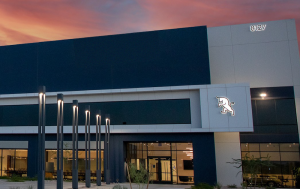Mesa-based electric vehicle manufacturer ElectraMeccanica and British electric truck maker Tevva have reached an amicable settlement in a lawsuit stemming from the termination of their proposed merger in October. Tevva had filed the lawsuit after ElectraMeccanica decided to end the merger between the two companies. In a recent regulatory filing, ElectraMeccanica announced the resolution of the lawsuit, stating that both companies agreed to settle in their mutual best interest without admitting any wrongdoing.
The settlement not only puts an end to Tevva's legal action but also resolves counterclaims that ElectraMeccanica was prepared to file against Tevva and others in connection with the failed merger. The terms of the settlement were not disclosed, but the resolution marks a conclusion to the legal dispute and allows both companies to move forward independently.
The failed merger had generated significant attention in the electric vehicle industry, especially as both ElectraMeccanica and Tevva are key players in the rapidly evolving market. ElectraMeccanica specializes in single-passenger electric vehicles, including the widely known Solo model, while Tevva focuses on electric trucks, addressing the growing demand for sustainable freight transportation solutions.
While the specific reasons behind the termination of the merger were not detailed in the regulatory filing, the settlement suggests that both companies prefer to put the legal dispute behind them and focus on their respective business trajectories. The amicable resolution allows ElectraMeccanica and Tevva to concentrate on their individual growth strategies and contribute to advancements in the electric vehicle sector.
As the electric vehicle market continues to expand globally, collaborations, mergers, and partnerships have become common strategies for companies seeking to enhance their capabilities and broaden their market presence. However, not all proposed mergers come to fruition, and the ElectraMeccanica-Tevva case highlights the complexities and challenges involved in such strategic moves.
The settlement brings closure to a chapter of uncertainty for both ElectraMeccanica and Tevva, allowing them to navigate their paths independently amid the dynamic landscape of electric mobility. The focus now turns to the future endeavors of these companies as they strive to contribute to the ongoing evolution of the electric vehicle industry.






















